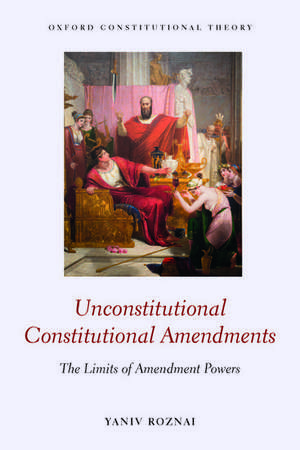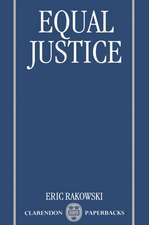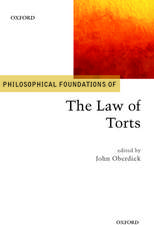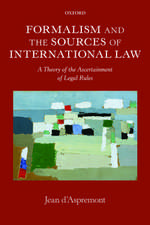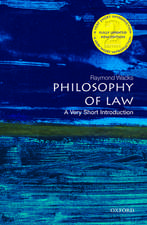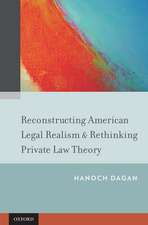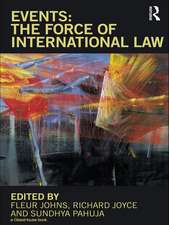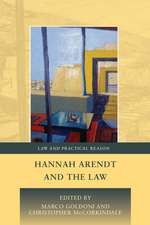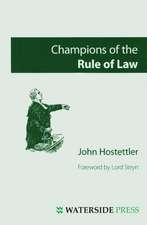Unconstitutional Constitutional Amendments: The Limits of Amendment Powers: Oxford Constitutional Theory
Autor Yaniv Roznaien Limba Engleză Paperback – 7 feb 2019
| Toate formatele și edițiile | Preț | Express |
|---|---|---|
| Paperback (1) | 286.24 lei 42-47 zile | +96.48 lei 6-12 zile |
| OUP OXFORD – 7 feb 2019 | 286.24 lei 42-47 zile | +96.48 lei 6-12 zile |
| Hardback (1) | 743.20 lei 42-47 zile | |
| OUP OXFORD – 16 feb 2017 | 743.20 lei 42-47 zile |
Din seria Oxford Constitutional Theory
- 33%
 Preț: 648.97 lei
Preț: 648.97 lei - 19%
 Preț: 289.67 lei
Preț: 289.67 lei - 17%
 Preț: 326.16 lei
Preț: 326.16 lei - 34%
 Preț: 709.90 lei
Preț: 709.90 lei -
 Preț: 290.72 lei
Preț: 290.72 lei - 34%
 Preț: 615.73 lei
Preț: 615.73 lei - 34%
 Preț: 644.55 lei
Preț: 644.55 lei - 33%
 Preț: 563.33 lei
Preț: 563.33 lei -
 Preț: 375.00 lei
Preț: 375.00 lei -
 Preț: 366.01 lei
Preț: 366.01 lei - 26%
 Preț: 569.59 lei
Preț: 569.59 lei - 34%
 Preț: 647.15 lei
Preț: 647.15 lei - 31%
 Preț: 397.02 lei
Preț: 397.02 lei - 19%
 Preț: 241.43 lei
Preț: 241.43 lei - 12%
 Preț: 331.14 lei
Preț: 331.14 lei - 23%
 Preț: 735.40 lei
Preț: 735.40 lei - 18%
 Preț: 322.01 lei
Preț: 322.01 lei - 26%
 Preț: 648.25 lei
Preț: 648.25 lei - 33%
 Preț: 680.40 lei
Preț: 680.40 lei - 33%
 Preț: 651.84 lei
Preț: 651.84 lei - 27%
 Preț: 694.92 lei
Preț: 694.92 lei - 25%
 Preț: 358.72 lei
Preț: 358.72 lei - 18%
 Preț: 342.72 lei
Preț: 342.72 lei - 34%
 Preț: 646.64 lei
Preț: 646.64 lei - 12%
 Preț: 338.62 lei
Preț: 338.62 lei - 19%
 Preț: 285.27 lei
Preț: 285.27 lei - 18%
 Preț: 301.95 lei
Preț: 301.95 lei - 34%
 Preț: 709.22 lei
Preț: 709.22 lei -
 Preț: 351.65 lei
Preț: 351.65 lei - 22%
 Preț: 370.05 lei
Preț: 370.05 lei - 27%
 Preț: 601.35 lei
Preț: 601.35 lei - 34%
 Preț: 739.35 lei
Preț: 739.35 lei
Preț: 286.24 lei
Preț vechi: 353.87 lei
-19%
Puncte Express: 429
Preț estimativ în valută:
50.62€ • 59.91$ • 44.14£
50.62€ • 59.91$ • 44.14£
Carte tipărită la comandă
Livrare economică 03-08 aprilie
Livrare express 26 februarie-04 martie pentru 106.47 lei
Specificații
ISBN-13: 9780198840664
ISBN-10: 0198840667
Pagini: 368
Dimensiuni: 162 x 234 x 19 mm
Greutate: 0.56 kg
Editura: OUP OXFORD
Colecția OUP Oxford
Seria Oxford Constitutional Theory
Locul publicării:Oxford, United Kingdom
ISBN-10: 0198840667
Pagini: 368
Dimensiuni: 162 x 234 x 19 mm
Greutate: 0.56 kg
Editura: OUP OXFORD
Colecția OUP Oxford
Seria Oxford Constitutional Theory
Locul publicării:Oxford, United Kingdom
Recenzii
[This] book not only ranges across constitutional amendment limitation provisions [worldwide], but also provides deep theoretical treatment of a central normative constitutional issue... The book joins deep theory, doctrinal subtlety, and an empirical breadth that exhibits a boundary-pushing interdisciplinarity of a truly outstanding calibre. It is likely to be a key reference point on this crucial issue for a considerable time to come.
The book skilfully introduces the phenomenon of unconstitutional constitutional amendments and provides a sophisticated justification for constitutional unamendability... The book's appeal is not only to those studying constitutional change, but also to scholars of comparative law and comparative politics, as well as those brooding over what it means to uphold democracy. It also promises to be an invaluable reference book with its extensive bibliography... Institutional and personal libraries alike had better make room for Unconstitutional Constitutional Amendments.
Roznai's book provides a comprehensive and detailed analysis of unconstitutional constitutional amendments. Roznai discusses the constitutions containing provisions regarding this fascinating phenomenon (be they express or implied), and the courts' reactions to them. The book provides an in-depth analytical review of the problems that eternity clauses present the political authorities and the courts. This is an excellent book that discusses one of the central problems of modern constitutionalism.
This excellent book is not just another addendum to the list of technical problems handled by constitutional experts. In his analysis of the character of the amending power - 'an exceptional authority, yet a limited one' - Yaniv Roznai reaches the very core of constitutionalism. Setting aside the formal positivistic framework, his rich and illuminating reconstruction of the role of 'the people' and the meaning of democracy in a constitutional polity refreshes and deepens the understanding of liberal democracy. In times when liberal democracy is under severe stress almost everywhere and challenged by advocates of illiberal democracy, this book could not be more timely.
The problem of unconstitutional constitutional amendments is one of the most topical issues in comparative constitutional law. Roznai's book offers a rigorous framework for analysis and a global knowledge base. It is a welcome addition to the literature on constitutional amendment and will be an essential reference for unconstitutional amendments for some time to come.
An unconstitutional constitutional amendment - does it exist? More often than you may have thought. But rarely has it been explored. This book, which truly fills a gap, gives a thorough account of and a theoretical foundation for constitutional unamendabilitya subject that gains more and more importance in modern constitutionalism.
The theory of constitutional amendments has, somewhat surprisingly, emerged as one of the most central questions for contemporary constitutional theory. Providing a comprehensive overview of worldwide practice regarding judicial review of constitutional amendments, Yaniv Roznai offers the most sophisticated theoretical account yet of constitutional amendments. This is a work of fundamental importance to everyone concerned with the basics of constitutional theory.
[Unconstitutional Constitutional Amendments] provides a persuasive and both normatively and empirically well-informed contribution to the debate on the limits of constitutional amendments. For its clear-cut normative theory alone, this book is seminal reading and will be an essential reference to scholars of constitutional law and constitutional politics for years to come.
Unconstitutional Constitutional Amendments is a work of great breadth and theoretical sophistication. It may well be the final word on the coherence of constitutional unamendability and the legitimacy of judicial review of amendments.
Roznai's comparative constitutional law account makes the book an essential source, not specifically limited to this subject, but also for studies of constitutional theory and constitutional design.
It is absolutely terrific in every way, from its truly dazzling scholarship to the intellectual depth on every page.
Unconstitutional constitutional amendments ... pose a major challenge for public law. Roznai has taken up this challenge and has produced an illuminating analysis of the problem. His book has already been the subject of much praise. Various workshops and conference panels have been devoted to the work and its author. This popularity is well deserved. The book summarizes the previous debate concisely, argues diligently, and makes an innovative contribution to a genuinely difficult problem. Probably the greatest strength of the book is its truly global approach, which sets new standards for comparative constitutional studies. The clarity and rigor of his writing helps Roznai to navigate the reader through dozens of jurisdictions and decades of legal scholarship.
A veritable encyclopaedia of amendatory power and what various apex courts have done (or not done) with it. And for the cognoscenti, it is a rich theory festival. ... this work is of compelling merit; both painstakingly researched, and elegantly presented in a reader-friendly way ... The work offers an embarrassment de riches and for long will be a source of many comparative constitutional theory studies.
Roznai's book is a terrifically executed account of a constitutional theory justifying the concept of unconstitutional constitutional amendments and the practice of judicial review thereof... The work is a real accomplishment... and deserves reading and consideration by all concerned with constitutional theory.
The best case yet for limits to the amending power, and Roznai's knowledge of comparative politics is superb.
Any response to this book should acknowledge the depth of its scholarship, the clarity of its analysis and the elegance of its proposed solution. Moreover, the argument successfully unscrambles the apparent conceptual confusion in the idea of an unconstitutional constitutional amendment.
The cancerous growth of populism is infecting electoral procedures and may, sooner or later, produce democratically elected majorities capable and willing to adopt constitutional reforms deforming the European acquis constitutionnelle. The debate on unconstitutional constitutional amendments cannot be regarded as devoid of any practical importance. We are fortunate that the doctrinal writings on constitutional amendments are on the rise and that we have publications of such intellectual quality and thoroughness as this book.
Yaniv Roznai's book will certainly foster scholarly debate on constitutional identity and constitutional change, as well as the role of constitutional courts in the enforcement of limits to the amending power. Overall, the text is interesting, well-written and enjoyable for the reader … a significant contribution to the scholarly debate on constitutional change.
[This is an] extremely fascinating and engaging book ...[that] gives us a wonderful theoretical and practical perspective with which to look at that diversity of the application of constitutional unamendability. Every single analysis of the doctrine is attractive and based on evidence... [it is] a relevant and rich source of theories and practices of constitutional unamendability in a truly comparative context.
[This is the] most authentic [text] on the theme of unconstitutional constitutional amendments... [It will] serve the interests of all who are engaged in learning the subject or are engaged in making a constitution or those who are engaged in interpreting and applying the constitution in day to day affairs of a country. Its easy reading, appropriate, and convincing arguments, and examples in support of its theme, are an additional attraction for all those who have any concern for the theory or practice of constitution making or applying.
This is an exhaustive book which has achieved the outstanding outcome of sketching out a theoretically challenging and empirically relevant field of constitutional studies. There is still room for more work on the topic, but this is certainly a remarkable beginning.
Yaniv Roznai's Unconstitutional Constitutional Amendments: The Limits of Amendment Powers, is, to my knowledge, the first book to deal with these problems and questions [raised by constitutional unamendability] from both a theoretical and comparative (global) perspective.
The book skilfully introduces the phenomenon of unconstitutional constitutional amendments and provides a sophisticated justification for constitutional unamendability... The book's appeal is not only to those studying constitutional change, but also to scholars of comparative law and comparative politics, as well as those brooding over what it means to uphold democracy. It also promises to be an invaluable reference book with its extensive bibliography... Institutional and personal libraries alike had better make room for Unconstitutional Constitutional Amendments.
Roznai's book provides a comprehensive and detailed analysis of unconstitutional constitutional amendments. Roznai discusses the constitutions containing provisions regarding this fascinating phenomenon (be they express or implied), and the courts' reactions to them. The book provides an in-depth analytical review of the problems that eternity clauses present the political authorities and the courts. This is an excellent book that discusses one of the central problems of modern constitutionalism.
This excellent book is not just another addendum to the list of technical problems handled by constitutional experts. In his analysis of the character of the amending power - 'an exceptional authority, yet a limited one' - Yaniv Roznai reaches the very core of constitutionalism. Setting aside the formal positivistic framework, his rich and illuminating reconstruction of the role of 'the people' and the meaning of democracy in a constitutional polity refreshes and deepens the understanding of liberal democracy. In times when liberal democracy is under severe stress almost everywhere and challenged by advocates of illiberal democracy, this book could not be more timely.
The problem of unconstitutional constitutional amendments is one of the most topical issues in comparative constitutional law. Roznai's book offers a rigorous framework for analysis and a global knowledge base. It is a welcome addition to the literature on constitutional amendment and will be an essential reference for unconstitutional amendments for some time to come.
An unconstitutional constitutional amendment - does it exist? More often than you may have thought. But rarely has it been explored. This book, which truly fills a gap, gives a thorough account of and a theoretical foundation for constitutional unamendabilitya subject that gains more and more importance in modern constitutionalism.
The theory of constitutional amendments has, somewhat surprisingly, emerged as one of the most central questions for contemporary constitutional theory. Providing a comprehensive overview of worldwide practice regarding judicial review of constitutional amendments, Yaniv Roznai offers the most sophisticated theoretical account yet of constitutional amendments. This is a work of fundamental importance to everyone concerned with the basics of constitutional theory.
[Unconstitutional Constitutional Amendments] provides a persuasive and both normatively and empirically well-informed contribution to the debate on the limits of constitutional amendments. For its clear-cut normative theory alone, this book is seminal reading and will be an essential reference to scholars of constitutional law and constitutional politics for years to come.
Unconstitutional Constitutional Amendments is a work of great breadth and theoretical sophistication. It may well be the final word on the coherence of constitutional unamendability and the legitimacy of judicial review of amendments.
Roznai's comparative constitutional law account makes the book an essential source, not specifically limited to this subject, but also for studies of constitutional theory and constitutional design.
It is absolutely terrific in every way, from its truly dazzling scholarship to the intellectual depth on every page.
Unconstitutional constitutional amendments ... pose a major challenge for public law. Roznai has taken up this challenge and has produced an illuminating analysis of the problem. His book has already been the subject of much praise. Various workshops and conference panels have been devoted to the work and its author. This popularity is well deserved. The book summarizes the previous debate concisely, argues diligently, and makes an innovative contribution to a genuinely difficult problem. Probably the greatest strength of the book is its truly global approach, which sets new standards for comparative constitutional studies. The clarity and rigor of his writing helps Roznai to navigate the reader through dozens of jurisdictions and decades of legal scholarship.
A veritable encyclopaedia of amendatory power and what various apex courts have done (or not done) with it. And for the cognoscenti, it is a rich theory festival. ... this work is of compelling merit; both painstakingly researched, and elegantly presented in a reader-friendly way ... The work offers an embarrassment de riches and for long will be a source of many comparative constitutional theory studies.
Roznai's book is a terrifically executed account of a constitutional theory justifying the concept of unconstitutional constitutional amendments and the practice of judicial review thereof... The work is a real accomplishment... and deserves reading and consideration by all concerned with constitutional theory.
The best case yet for limits to the amending power, and Roznai's knowledge of comparative politics is superb.
Any response to this book should acknowledge the depth of its scholarship, the clarity of its analysis and the elegance of its proposed solution. Moreover, the argument successfully unscrambles the apparent conceptual confusion in the idea of an unconstitutional constitutional amendment.
The cancerous growth of populism is infecting electoral procedures and may, sooner or later, produce democratically elected majorities capable and willing to adopt constitutional reforms deforming the European acquis constitutionnelle. The debate on unconstitutional constitutional amendments cannot be regarded as devoid of any practical importance. We are fortunate that the doctrinal writings on constitutional amendments are on the rise and that we have publications of such intellectual quality and thoroughness as this book.
Yaniv Roznai's book will certainly foster scholarly debate on constitutional identity and constitutional change, as well as the role of constitutional courts in the enforcement of limits to the amending power. Overall, the text is interesting, well-written and enjoyable for the reader … a significant contribution to the scholarly debate on constitutional change.
[This is an] extremely fascinating and engaging book ...[that] gives us a wonderful theoretical and practical perspective with which to look at that diversity of the application of constitutional unamendability. Every single analysis of the doctrine is attractive and based on evidence... [it is] a relevant and rich source of theories and practices of constitutional unamendability in a truly comparative context.
[This is the] most authentic [text] on the theme of unconstitutional constitutional amendments... [It will] serve the interests of all who are engaged in learning the subject or are engaged in making a constitution or those who are engaged in interpreting and applying the constitution in day to day affairs of a country. Its easy reading, appropriate, and convincing arguments, and examples in support of its theme, are an additional attraction for all those who have any concern for the theory or practice of constitution making or applying.
This is an exhaustive book which has achieved the outstanding outcome of sketching out a theoretically challenging and empirically relevant field of constitutional studies. There is still room for more work on the topic, but this is certainly a remarkable beginning.
Yaniv Roznai's Unconstitutional Constitutional Amendments: The Limits of Amendment Powers, is, to my knowledge, the first book to deal with these problems and questions [raised by constitutional unamendability] from both a theoretical and comparative (global) perspective.
Notă biografică
Yaniv Roznai is a senior lecturer at the Radzyner Law School of the Interdisciplinary Center Herzliya (IDC). He specializes in comparative constitutional law, constitutional theory, legisprudence, and public international law. Roznai holds a PhD and LLM from the London School of Economics, and LLB and BA degrees in law and government from the IDC. He is also an elected board member and secretary general of the Israeli Association of Public Law. He has been a Post-Doctoral Fellow at the Minerva Center for the Rule of Law under Extreme Conditions, University of Haifa, and at the Hauser Global Law School, New York University, and a visiting researcher at the Program in Law and Public Affairs, Princeton University. This book is based upon his PhD for which he was awarded the 2014 Thesis Prize of the European Group of Public Law.
